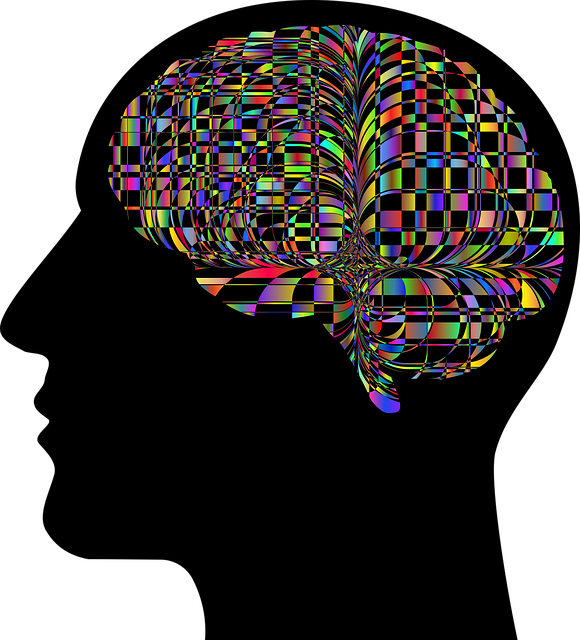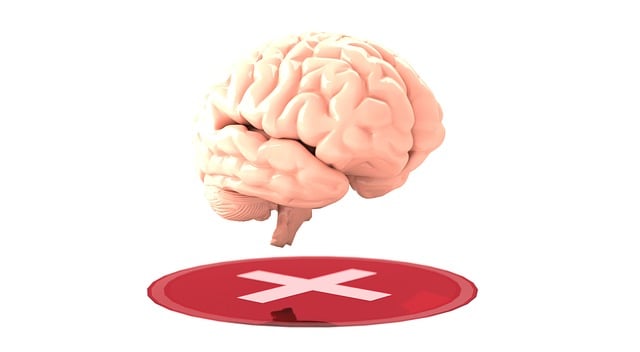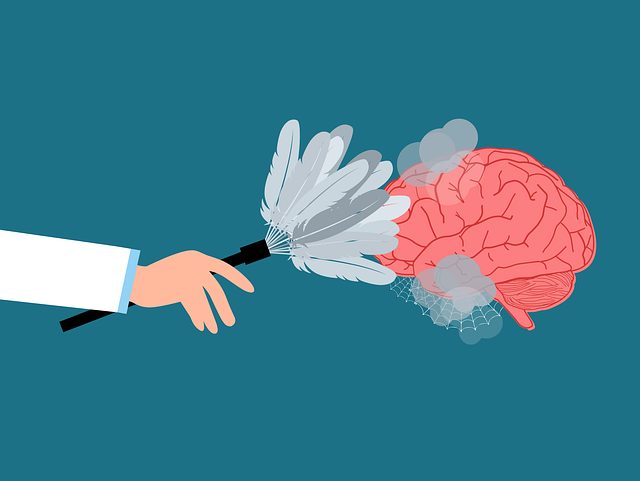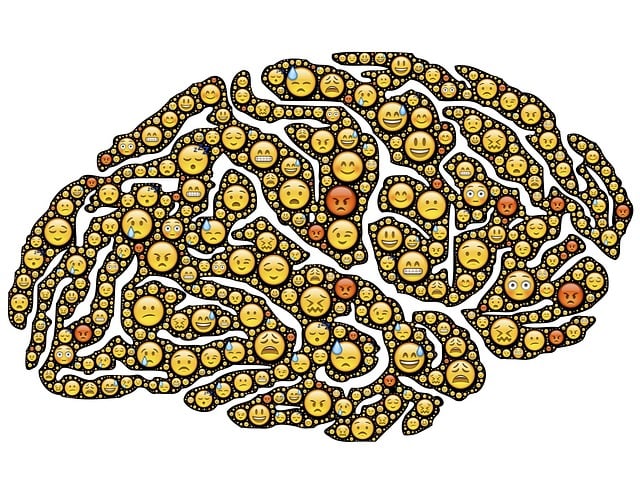Mental wellness is dynamic, influenced by stressors, relationships, and environment. Neglecting it can lead to anxiety, depression, or eating disorders, emphasizing the need for self-care and professional support like Lone Tree Eating Disorders Therapy. Prioritizing mental wellness through strategies like meditation, journaling, nature walks, hobbies, therapy, or podcasts reduces stress, increases resilience, and enhances overall well-being. Identifying personal stressors triggers tailored strategies, building resilience over time. A personalized self-care routine featuring mindfulness, journaling, creative pursuits, and nature connections is essential for managing mood and enhancing well-being. Evidence-based practices like meditation, deep breathing, and yoga reduce stress and anxiety, fostering inner calm. Therapy provides coping mechanisms, challenges negative thoughts, and addresses underlying issues, building resilience and improving overall mental health. Combining therapy with self-care routines significantly improves well-being, prevents relapse, and fosters stability in mental health.
“Unwind and embrace a transformative mental wellness journey. In today’s fast-paced world, prioritizing self-care is paramount for overall well-being. This comprehensive guide navigates the intricate path to developing a personalized self-care routine. From understanding the profound impact of mental health on daily life to identifying unique stressors, we explore evidence-based practices for mindfulness and healing. Discover how Lone Tree Eating Disorders Therapy can foster resilience and provide the support needed to thrive. Embrace change and cultivate a sanctuary within.”
- Understanding Mental Wellness and Its Impact on Daily Life
- Identifying Personal Stressors and Triggers
- Crafting a Self-Care Routine Tailored to Individual Needs
- Incorporating Evidence-Based Practices for Mindfulness and Healing
- Building Resilience and Seeking Support: The Role of Therapy
Understanding Mental Wellness and Its Impact on Daily Life

Mental wellness is a vital aspect of overall health and well-being, encompassing our emotional, psychological, and social state. It affects how we think, feel, and act in our daily lives, influencing our ability to cope with stress, make choices, and relate to others. Understanding mental wellness involves recognizing its dynamic nature; it can fluctuate from day to day, and different factors, such as stressful events, relationship issues, or even environmental influences, can impact our mental state. Neglecting mental wellness can lead to various challenges, including anxiety, depression, and in severe cases, eating disorders like those requiring Lone Tree Eating Disorders Therapy.
In today’s fast-paced world, where demands on our time and energy are constant, prioritizing mental wellness is more crucial than ever. Building empathy for oneself and others is a powerful strategy to navigate the ups and downs of life. The practice of self-care, tailored to individual needs, can include activities like meditation, journaling, spending time in nature, engaging in hobbies, or seeking support through therapy or mental wellness podcasts. These strategies promote better stress management, enhance resilience, and contribute to overall mental wellness, ultimately enabling individuals to lead more fulfilling lives.
Identifying Personal Stressors and Triggers

Identifying personal stressors and triggers is a crucial step in developing an effective mental wellness self-care routine. This process involves introspecting to understand what specifically sets off feelings of anxiety, stress, or even triggers eating disorders. Every individual is unique, so their stressors may vary greatly; from work pressures and financial worries to interpersonal conflicts and social media influences. By recognizing these personal factors, one can start addressing them proactively.
For instance, someone struggling with Lone Tree Eating Disorders Therapy might find that certain foods or mealtimes evoke distressing memories or feelings of control. Understanding these triggers allows for the development of tailored strategies such as practicing mindfulness during meals, seeking support from a therapist specializing in eating disorders, and employing conflict resolution techniques to navigate challenging situations. Building resilience through mental health awareness can further equip individuals with the tools to manage and overcome these triggers over time.
Crafting a Self-Care Routine Tailored to Individual Needs

Developing a self-care routine is a deeply personal journey, and what works for one person might differ greatly from another’s needs. It’s akin to tending to a unique garden; each flower requires specific care to bloom. When it comes to mental wellness, this means crafting a routine that nurtures your mind, body, and soul in ways that feel right for you.
Consider the diverse array of self-care practices available—from mindfulness exercises and journaling to creative pursuits and connecting with nature. Incorporate activities that help manage mood, reduce stress, and boost overall well-being. For instance, someone struggling with eating disorders might find solace in Lone Tree Eating Disorders Therapy’s mental wellness podcast series production, which offers valuable insights and support tailored to their specific needs. By combining professional guidance with personal exploration, individuals can create a self-care routine that becomes an integral part of their journey towards healing and growth.
Incorporating Evidence-Based Practices for Mindfulness and Healing

Incorporating evidence-based practices for mindfulness and healing is a cornerstone in developing an effective self-care routine for better mental health. Techniques like meditation, deep breathing exercises, and yoga have been scientifically proven to reduce stress, anxiety, and even depression (Depression Prevention). These practices promote awareness and acceptance of one’s thoughts and feelings, fostering a sense of inner calm and resilience. For instance, mindfulness meditation encourages individuals to focus on the present moment, thereby breaking free from negative thought patterns that can contribute to eating disorders or exacerbate symptoms (Lone Tree Eating Disorders Therapy).
Self-care routine development should also include activities that enhance emotional regulation skills, such as keeping a journal, engaging in creative pursuits, and practicing gratitude. These strategies not only support mental wellness but also serve as valuable crisis intervention guidance when facing challenging situations. By integrating these evidence-based practices into daily life, individuals can cultivate a deeper connection with themselves, leading to improved overall well-being (Self-Care Routine Development for Better Mental Health).
Building Resilience and Seeking Support: The Role of Therapy

Building resilience is a key aspect of maintaining mental wellness, and therapy plays a pivotal role in this process. It provides individuals with tools to navigate life’s challenges and setbacks, fostering an ability to adapt and bounce back stronger. Through regular sessions, one can learn effective coping mechanisms, challenge negative thought patterns, and develop healthier ways of managing stress. Therapy offers a safe space to explore emotions, gain insights into behaviors, and understand the underlying causes of mental health issues like depression or eating disorders.
Seeking professional support from Lone Tree Eating Disorders Therapy, for instance, can be a transformative step towards healing. Therapists are trained in various evidence-based practices designed to enhance resilience and promote mental wellness. They offer tailored strategies for risk management planning, helping individuals prepare for potential triggers and manage their conditions effectively. By combining therapy with self-care routines, one can significantly improve overall well-being, prevent relapse, and cultivate a lasting sense of stability and control over one’s mental health.
Developing a personalized mental wellness self-care routine is a transformative journey that empowers individuals to take control of their well-being. By understanding mental health’s impact, identifying personal triggers, and incorporating evidence-based practices, one can effectively manage stress. At Lone Tree Eating Disorders Therapy, we emphasize the importance of building resilience through therapy, offering a supportive environment for those seeking holistic healing. Embrace self-care as a daily practice to foster mental wellness and live a more fulfilling life.














